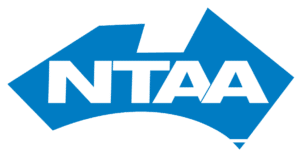Tax audits can be intimidating experiences for both individuals and businesses. They involve the scrutiny and validation of tax returns and financial records by tax authorities like the Australian Taxation Office (ATO).
Having a grasp of the audit process, knowing your rights, and obtaining professional guidance can greatly assist in effectively managing this demanding phase.
Does the ATO check every tax return?
Yes, the ATO checks all tax returns using automated systems, which verify basic details against information from employers and other sources.
If a return seems unusual, it’s reviewed further by ATO staff. They prioritize returns based on risk, focusing on those most likely to have errors.
Each year, the ATO conducts tens of thousands of audits on individuals and businesses to ensure compliance with tax laws and fairness in the system.

What happens if the ATO audits you and what are your rights?
The ATO conducts audits to ensure taxpayers comply with tax regulations and accurately report their income. They have the authority to audit any taxpayer and often utilize data-matching techniques to cross-check information. If discrepancies are found between the information provided by taxpayers and data from third-party sources, they may be selected for an audit.
Teaming up with a certified accountant is your best bet to avoid audits in Australia. Their expertise can lower the audit risk. And if you do face an audit, you’ll have a reliable professional to assist you every step of the way.
As someone potentially facing an audit, here’s what you can expect in the process.
Stage 1: Initial Contact
First, the auditor will call you to arrange a meeting. During this call, they’ll discuss which records they need to see and the time period they’re interested in. They’ll also explain what they’ll be focusing on during the audit.
Stage 2: Written Confirmation
After the call, you’ll get a written confirmation with details about the meeting. This will include what records to bring and the timeframe they’ll be looking at.
Stage 3: Meeting with the ATO officer
You’ll then meet with the ATO officer to discuss the audit’s scope and how they’ll conduct it. This is your chance to ask questions. The meeting can be in person or online.
Stage 4: Reviewing Records
After the meeting, the ATO officer will start looking at your records. They might check your business bank accounts and tax documents if you’re a business owner, or your personal records if you’re a non-business taxpayer. Throughout, the ATO should keep you or your accountant updated.
Stage 5: Wrap-up and Explaining Findings
After checking everything, the ATO officer will talk to you about their findings. If there are mistakes, they’ll explain how to fix them, like paying more taxes or getting a refund if you’ve paid too much. If all is well, the audit ends.
Handling Complaints or Disputes Later
If you’re not happy with the results, there are ways to resolve it. You can use alternative dispute resolution (ADR) or in-house facilitation. ADR means a neutral third party helps solve issues through mediation, conciliation, or arbitration. In-house facilitation involves meeting with an ATO facilitator to find a solution.
How far back can the ATO audit you?
Tax law sets specific time limits for auditing and amending returns. Typically, the amendment period is two years for most taxpayers with straightforward returns. However, for individuals with more complex financial situations, such as businesses, the period extends to four years. There are no time limits for audits in cases where fraud or intentional tax evasion is suspected.
What triggers an ATO audit? What are ways to avoid being audited?
Certain actions can raise concerns for an Australian Taxation Office (ATO) audit.
These include claiming home office expenses, work-related travel expenses, and private health insurance rebate claims. If you’re self-employed or own a small business, it’s crucial to recognize these triggers to steer clear of audits. Additionally, Audit Insurance products offer added protection. Contact MNY consultants today to determine if you need extra safeguards in place or peace of mind in tax compliance.
- Not submitting your tax return on time is a big warning sign that might lead to an ATO audit. It’s crucial to always meet the deadlines since ATO closely watches for non-compliance. If your tax return is running late, it’s best to talk to an accountant or tax agent for guidance. They can help you navigate the process and reduce the risk of an ATO audit. Ignoring or delaying your tax lodgement increases the chances of an investigation and potential penalties for late filing. It’s important to submit your taxes on time to avoid these issues.
- Making errors on your tax return can raise concerns and possibly trigger an ATO audit. It’s crucial to understand why the audit was initiated and the consequences of mistakes. Knowing common errors that could prompt an audit helps manage the process and ensure your tax return is accurate to avoid penalties. If unsure about anything on your tax return or how to proceed if audited, seeking advice from a qualified accountant or tax specialist is highly recommended.
- When filing your tax return, it’s crucial to only claim deductions you’re entitled to. Incorrect or fraudulent claims can raise ATO suspicions and prompt an audit. To avoid unnecessary fines and charges, ensure you fulfil your obligations and provide accurate information when filing your taxes. If unsure about any deduction entitlement, seek advice before claiming to ensure all paperwork is in order.
- When filing taxes, it’s essential to be organized and attentive. Inadequate record-keeping of income and expenses is a common oversight that can attract an ATO tax audit. It’s crucial for taxpayers to accurately track their taxable income and related expenses. Failing to do so can lead to additional work if the ATO requests more documents, potentially triggering an audit. Taking the time to accurately document your finances from the beginning can save you time if faced with additional scrutiny from the ATO.
- It’s crucial to maintain accurate accounts, according to the ATO. Earning income from undisclosed sources can raise concerns. Being transparent with your finances is vital. Declare all relevant income sources, such as investments or freelance work. Failure to do so may lead to fines or further investigations. Therefore, businesses must ensure their financial statements are accurate and compliant with ATO standards.
- Failing to declare all your income can lead to severe penalties, including criminal charges like fines or imprisonment, and civil charges such as paying back taxes with interest. It’s crucial for taxpayers to remain compliant to avoid these consequences. Non-compliance with tax obligations can also result in ATO audits. To steer clear of audits, make sure you submit your return on time, maintain thorough financial records, and declare all your income. If uncertain about a deduction or any aspect of your return, seek guidance from the ATO rather than risking an audit. It’s not worth taking chances with audits!
Ways You Can Avoid Tax Audits
1. Verify the accuracy of your deductions and calculations
Double-checking your figures is a wise approach to ensure everything is correct before submitting your tax return. While it may not be the most exciting task, it’s an effective way to ensure accuracy. Partnering with a tax agent is a convenient way to ensure you cover all the necessary bases, as a skilled accountant can identify any errors and bring them to your attention. Given the ease of making mistakes, working with a tax agent is a practical way to ensure thoroughness.
2. Maintaining precise records
It’s common knowledge that retaining receipts for claimed items, whether digital or physical, is crucial. It’s worth noting that the ATO pays close attention to cash-based businesses, underscoring the importance of thorough transaction records. Being meticulous with your records is essential to avoid potential issues, especially if you’re not deliberately underreporting your income.
Investing in dependable accounting software can offer a solution to this issue. By utilizing one of the leading accounting software options available, you can efficiently organize your records. These platforms allow users to access their accounts from any location, streamlining the accounting process. This leads to faster, more cost-effective, and accurate record-keeping.
3. Get Audit Insurance
Think about obtaining insurance that includes audit coverage. With audit insurance, you won’t have to stress about the professional fees associated with managing an ATO audit. This can alleviate some of the pressure. Audit insurance policies typically cover the professional expenses incurred for reviewing and responding to an ATO audit program for tax compliance. However, it’s important to note that this insurance doesn’t cover any costs related to unpaid tax liabilities, such as fines and interest on those liabilities.
4. Keep Your Records for Five Years
When the ATO conducts an audit, they review your past tax returns and their history. Typically, individuals and small businesses are required to keep records for two years from the day they receive a notice of assessment until the deadline for filing income tax returns, while other taxpayers must retain records for four years. It’s important to note that you should maintain your records for a duration that covers both the five-year record-keeping period and the review period for assessment.
5. Disclose All Sources of Income
It’s essential to declare all sources of individual and business income. This encompasses revenue from business operations, short-term contracts, freelance work (like driving for Uber), as well as passive income like interest, share dividends, Airbnb rentals, and government benefits.
The Australian Taxation Office (ATO) utilizes advanced data-matching technology to identify unreported income. If their detection methods uncover discrepancies, an ATO investigation may ensue. Reporting all income, whether from domestic or foreign sources, is crucial. The ATO collaborates with over 40 countries to ensure accurate taxation of income as part of its efforts to uphold tax compliance standards for all Australians.
6. Align Your Lifestyle with Your Tax Returns
If your lifestyle suggests higher spending than what’s reflected in your income declarations, it could trigger an ATO audit. For example, frequent luxurious trips abroad or purchases of expensive items like cars or yachts may raise suspicions of unreported income, prompting ATO scrutiny. Auditors may be puzzled by your ability to sustain such a lifestyle with declared income, leading to investigations.
ATO auditors may review social media accounts to gather evidence of lavish spending inconsistent with reported income. They have access to bank transactions and airline ticket data, allowing them to identify discrepancies.
7. Claim Your Allowance Deductions
When filing your tax return, you might qualify for various deductions based on your profession or industry. However, these deductions must be lawful, and you must provide receipts or documentation to support your claims. Attempting to manipulate deductions is risky; if caught, you’ll not only have to repay the claimed amount but also face hefty fines. It’s essential to adhere to the rules and avoid any improper deductions.
Here’s how to avoid getting audited with MNY Group:
- Seek Professional Advice: When dealing with tax matters, it’s wise to consult a professional. We offer taxation planning, consultation, and guidance for business owners differently. 24/7 and guaranteed.
- Proper Tax Preparation: During tax season, ensure your business’ tax returns are accurately prepared. We assist in compiling monthly, quarterly, and annual activity and instalment statements to ensure accuracy in submissions to the tax office. Or we pay the fines for you.
- Reliable Assistance: Our professionals are readily available to assist you. Working with us ensures no surprises. We listen to your needs and provide tailored solutions to safeguard your assets, minimize tax liability, and help you achieve your objectives.
Book a Consultation: Schedule a consultation with MNY GROUP today to receive personalized assistance through your tax return process. With our expertise, you can navigate tax matters confidently and effectively.
Items likely to attract the ATO’s attention in 2024 and 2025
The Australian Taxation Office (ATO) pays close attention to various behaviours, characteristics, and tax issues to ensure compliance and fair tax practices. For the years 2024 and 2025, certain items and activities are likely to attract the ATO’s attention:
- Comparative Performance: Tax or economic performance that does not align with similar businesses could raise questions.
- Transparency and Adviser Influence: Low transparency in tax affairs or significant adviser influence over tax matters can draw scrutiny.
- Transaction Types: Large, one-off, or unusual transactions, especially those involving wealth transfer or shifting, are of interest.
- Tax Planning and Outcomes: Aggressive tax planning or outcomes that seem inconsistent with the intent of tax law could lead to further investigation.
- Compliance and Interpretation of Law: Choosing not to comply or regularly taking controversial interpretations of the law without engaging with the ATO are red flags
- Lifestyle and Business Asset Usage: A lifestyle not supported by after-tax income or tax-free private use of business assets can indicate discrepancies.
- Governance and Risk Management: Poor governance and risk management systems may indicate underlying issues with tax practices
Additionally, specific areas such as high deductions, work-related expenses, capital gains tax (CGT), franking credits, fringe benefits tax (FBT), private company profit extraction (Division 7A), property and construction, and the use of trusts are monitored closely.
The ATO is particularly vigilant about entities that might underreport capital gains, misuse franking credits, fail to lodge FBT returns correctly, extract profits without appropriate taxation, and engage in property transactions that could be misclassified for tax advantages. Trusts that make distributions in a manner inconsistent with typical operations or tax expectations also receive careful scrutiny.
It’s clear that the ATO is focusing on ensuring that individuals and businesses comply with tax laws and principles, emphasizing the importance of maintaining transparency, accurate reporting, and engagement with tax obligations. For those concerned about their tax position or practices, it may be beneficial to consult with a tax professional to ensure compliance and address any potential issues proactively.
How does the ATO check your bank account?
The ATO has access to bank account information, including transactions, deposits, and interest. This information can be obtained directly from banks without requiring individual permission.
Audits are undoubtedly stressful, but partnering with a chartered accountant can alleviate much of the burden. They provide expert guidance and support throughout the audit process, ensuring a smoother experience for individuals and businesses. Contact us today to learn how we can assist you in navigating through tax audits with confidence. For tax advice, MNY Group is your go-to destination. We adopt a holistic approach, consistently seeking ways to enhance your financial position by building, safeguarding, and expanding your wealth. Whether you’re an individual or a business, we cater to your needs. Our wide-ranging expertise covers taxation, accounting, financial planning, and more, ensuring we provide complete solutions for all your financial requirements. With our Complete Sheild Services, we provide all-around accounting and taxation services for a fixed monthly fee, backed by our guarantee. If you are audited by the tax office, we manage the process and cover the costs including any fines.




